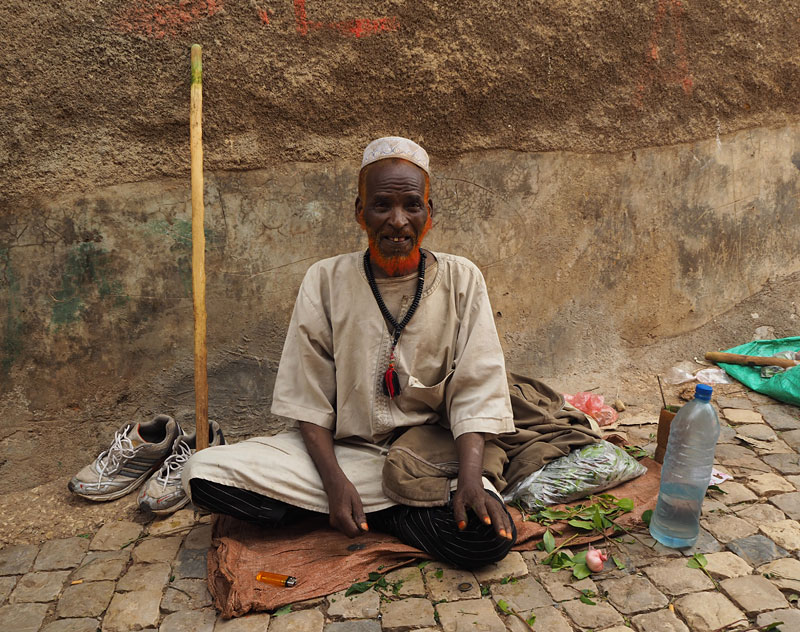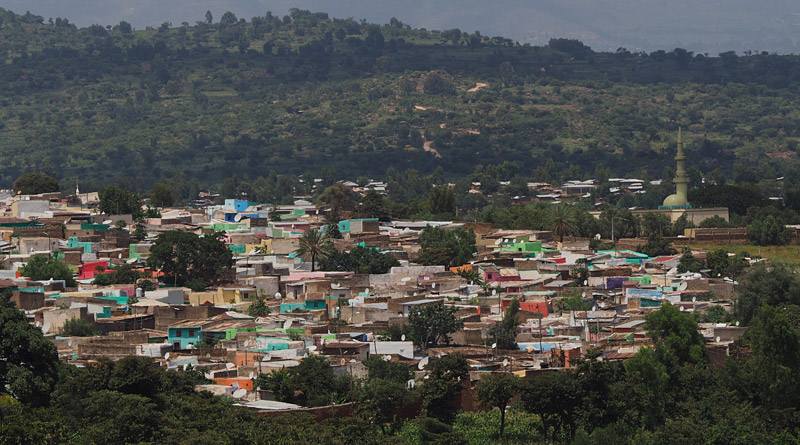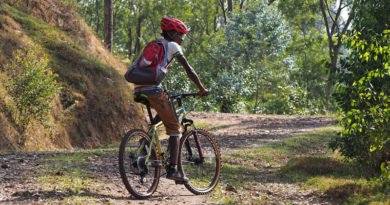Six things to do in Harar, Ethiopia, that don’t involve hyenas
The single coolest thing to do in Harar in eastern Ethiopia is without doubt spending some quality time with hyenas in the city rubbish dump (see my story A beastly back rub: Hanging out with the hyenas of Harar).
However, if that doesn’t sound like your thing, Harar has plenty more to offer. This city of 150,000 people in eastern Ethiopia is a World Heritage site with possibly the best preserved historic centre in the Horn of Africa.
To get there you’ll need to travel ten hours by bus from the capital, Addis Ababa, or fly one hour to the city of Dire Dawa then take a minibus for an hour.
The old town, known as the Jugol, is a maze of 368 alleyways squeezed into a square kilometre and is still surrounded by its original defensive walls and gates. The holiest Muslim city in Ethiopia, Harar’s old town boasts 82 mostly tiny mosques and more than 100 shrines.
There’s plenty to do apart from hanging out with hyenas, including:
Wander aimlessly
Really, this is the best thing you can do in Harar’s old town. Its narrow alleyways are lined by brightly painted houses, shrines, exotic markets and extraordinarily colourful Harari women. Only the main road is passable to vehicles; everywhere else the pedestrian (and the goat and the cow) is king. You’ll get lost but the old town is so compact you’ll eventually pop out at a gate or the main road.

Try the coffee
Ethiopia is said to be the home of coffee and Harar has the best in the country. Take a seat on a café balcony overlooking the old town’s main square and enjoy a heart-poundingly strong coffee for just 7 Birr (about NZ$0.50) while you watch the endless flurry of Harari life go by. When they go to a café Ethiopians tend to drink their coffee macchiato-style, short with a dollop of foamed milk.
Visit a market
From the moment you get off the bus you are surrounded by Harar’s chaotic, colourful markets. There are markets for spices, incense, produce, scrap metal, counterfeit goods, second-hand clothing, livestock and more. For extra entertainment you can watch birds of prey trying to help themselves to a free lunch at the butchers’ market.
Chew with the locals
The drug of choice in Harar is chat, a mildly narcotic leaf which many men spend hours a day chewing into great green gooey wads. The chat itself won’t do you much harm but be wary of over-friendly young men who invite tourists home for a chewing session before producing an astronomical bill (this scam is most prevalent in the capital).

Check out a traditional home
Harari interiors are richly decorated with tradition dictating everything from the relative heights of seating platforms to the number of niches in the walls (11) for displaying precious items. You can see one at the Harari Cultural Centre or, better still, stay in a cultural guesthouse (the only downside is that house rules tend to be strict, like staying with an elderly aunt).

Take a brewery tour
A conservative, mostly Muslim town is not the kind of place you’d expect to find a Czech-built brewery but Ethiopia has a way of confounding expectations. Tours of Harar Brewery are available every Friday and other days on request.
Harar practicalities
Harar is a 9-10 hour bus ride from the Ethiopian capital, Addis Ababa. Buses leave Addis at 5.30-6am and cost 180-280 birr (NZ$10-15, 2016 prices). If you can’t handle a bus trip that long you can fly with Ethiopian Airlines to Dire Dawa, the largest city in eastern Ethiopia, in an hour for about 3900 birr (NZ$210). Note that you can get a substantial discount on domestic flights if you arrived in Ethiopia on an international flight with Ethiopian Airlines.
From Dire Dawa minibuses leave hourly for the one-hour trip to Harar. When I visited work was well underway to rebuild the old railway which used to link Addis Ababa with the port in neighbouring Djibouti, so it might now be possible to take a train from Addis Ababa to Dire Dawa, then switch to a minibus.
Accommodation options in Harar include Belayneh Hotel (about 300 birr/NZ$16 for a single room in 2016), which has fabulous balcony views over the bustling Shoa Gate market but has bedbug infestations in some rooms; or one of the traditional homes in the Jugol (old town) such as Rowda Cultural Guesthouse (400 birr/NZ$21).
These guesthouses are beautiful but the house rules, which can include a 9pm curfew, are restrictive. They aren’t signposted and they’re in the maze-like Jugol so you have to ask for directions. If you have to stay a night in Dire Dawa the accommodation options in the city are fairly dire. You might be better off with one of the guesthouses out of town towards the airport.




